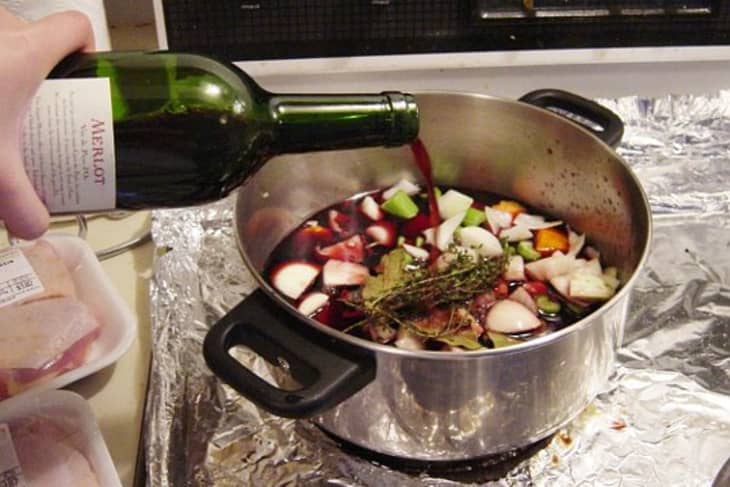Cooking By Feel: Does It Matter if You Use Red or White Wine for Cooking?
Some recipes get pretty specific about the kind of wine they want you to use: an oaky chardonnay in this reduction sauce, a hearty Italian red for that braise. But does it really matter?
We say, go for it. Switch it up! Experiment with flavors! Try something new! All wines will chemically behave in the same way, so there’s no danger that a recipe won’t work if you use a white instead of a red or vice versa.
If you’re thinking of using a different kind of wine (one with a different color or grape), taste it first and think about how that wine will taste with the other flavors in the dish. Some recipes will call for a particular kind of wine because the cook had a specific taste in mind for the final dish. There’s no rule that says you have to end up with the exact same dish, but it can be useful to have an idea of what was intended before veering off into your own territory.
A few things to remember:
• Flavors will become more concentrated and pronounced as the wine cooks and reduces. Keep this in mind when you pick a wine for cooking.
• Keep the amount of wine the same as in the original recipe. This ensures that cooking times and other food chemistry kinds of things stay the same.
• Red wine will turn a light-colored dish purple. True fact!
What other tips do you have for wine substitutions in recipes?
Related: Ingredient Spotlight: Cooking with Beer
(Image: Flickr member morethanreal licensed under Creative Commons)
